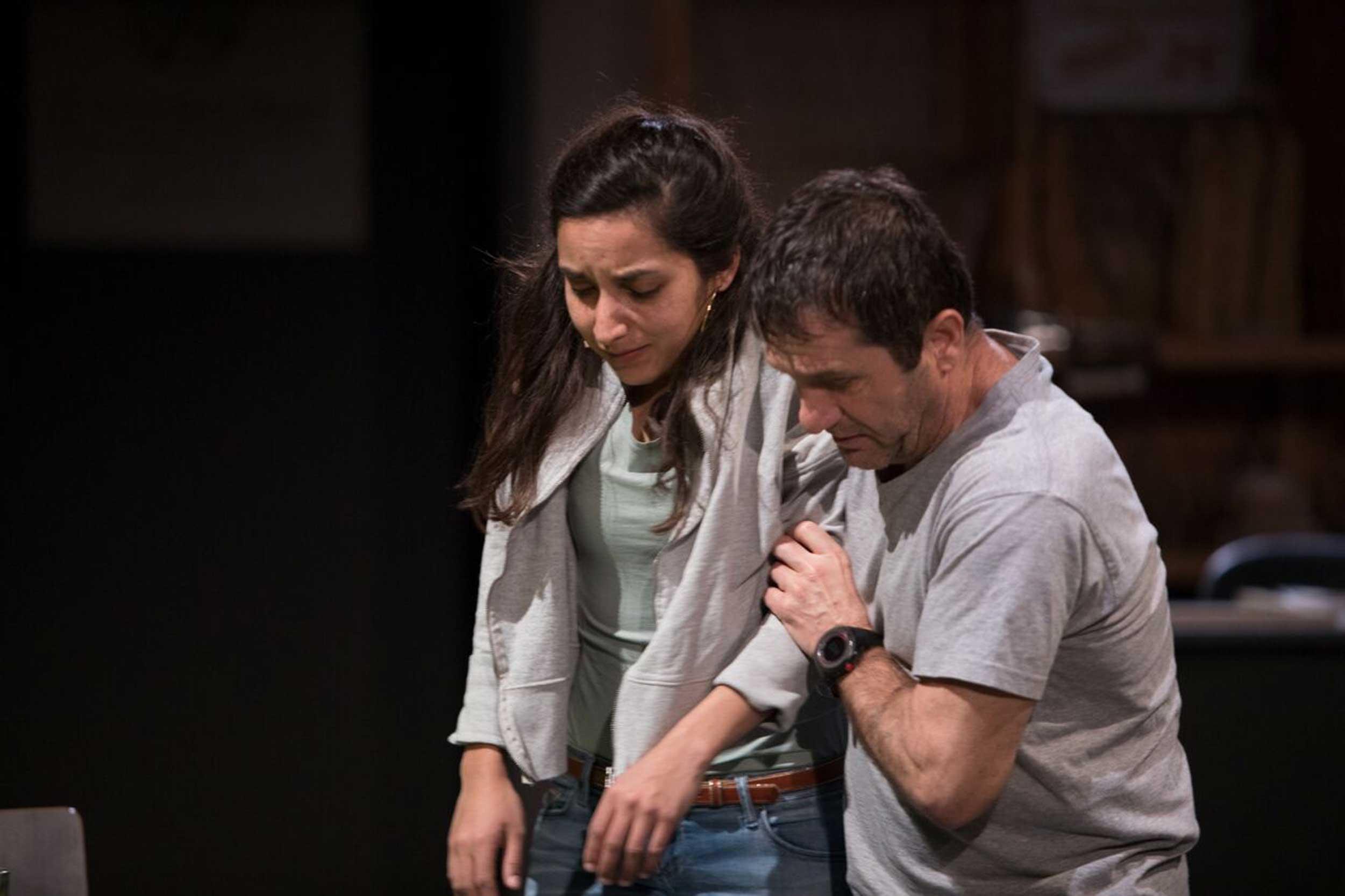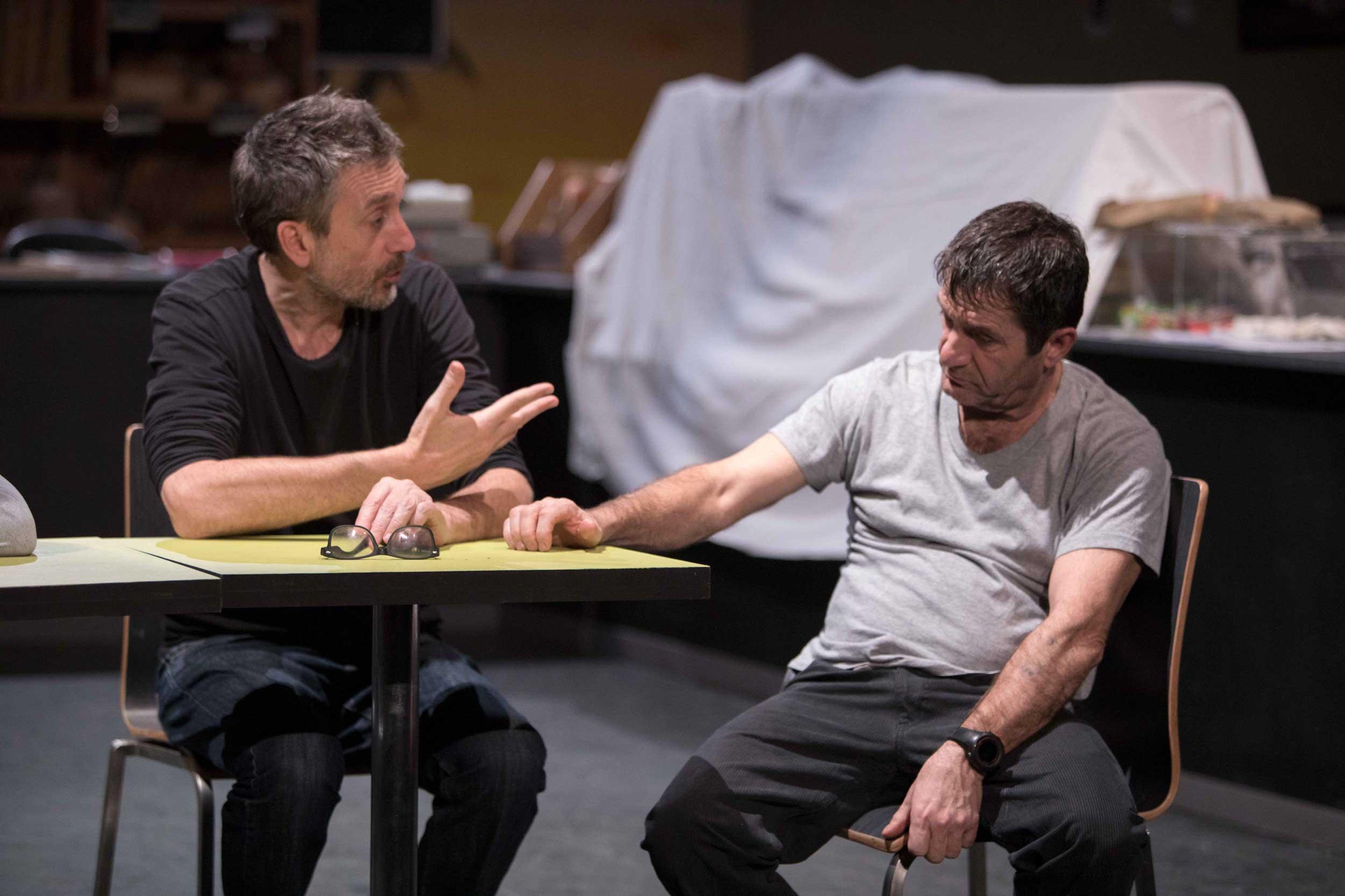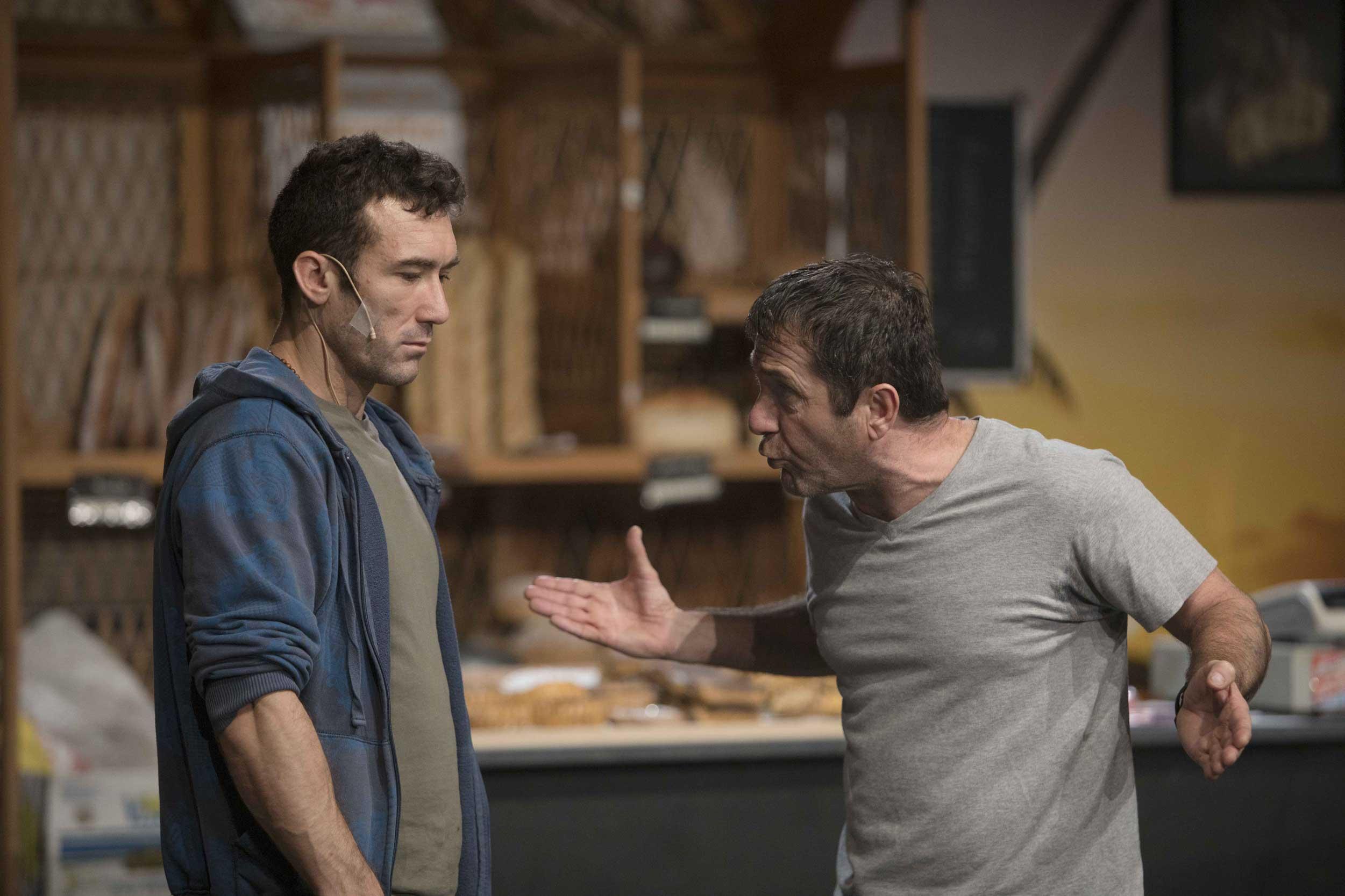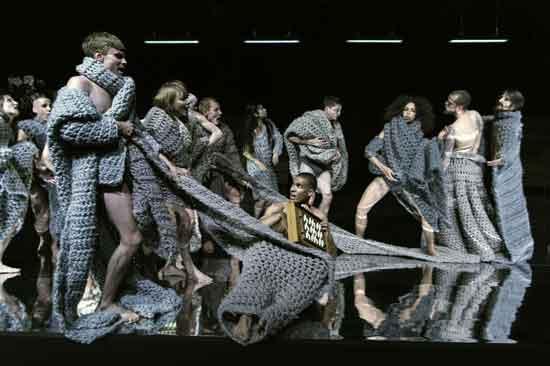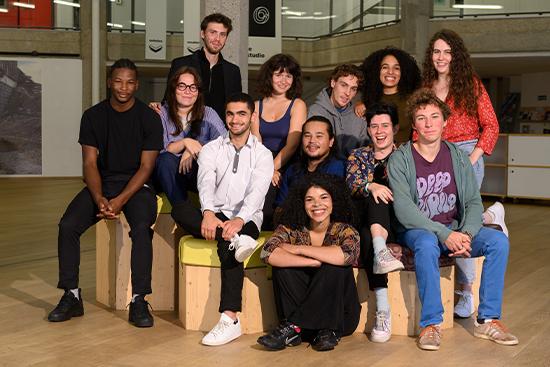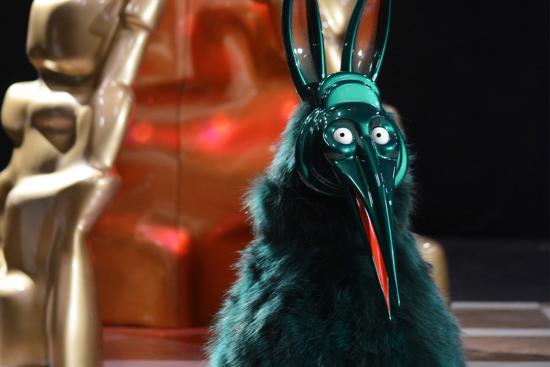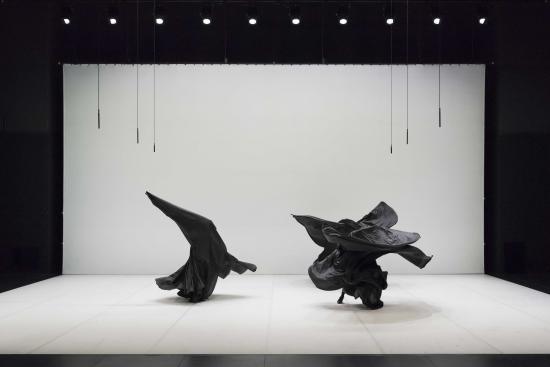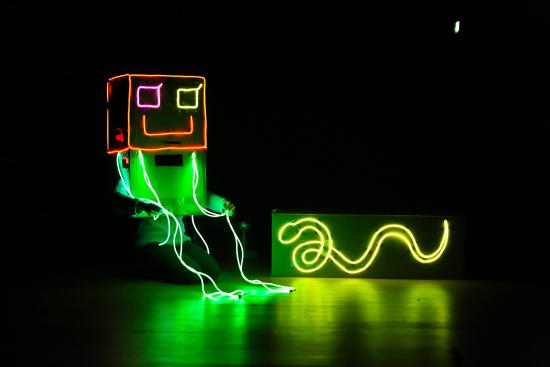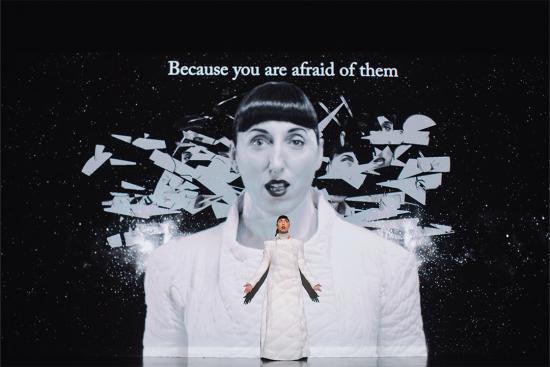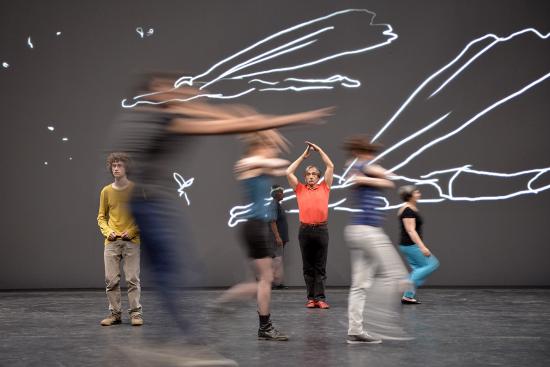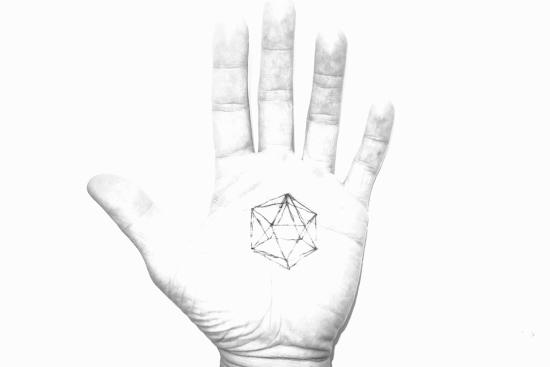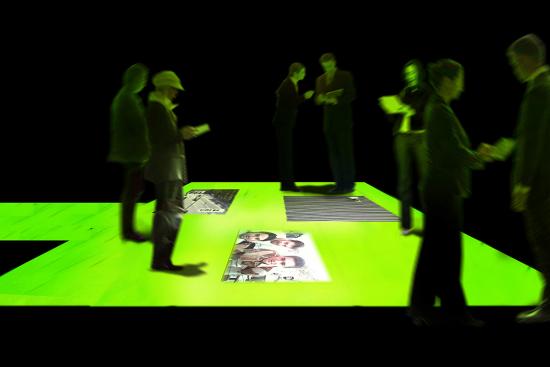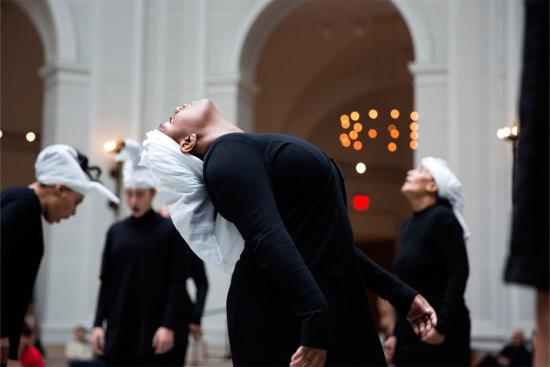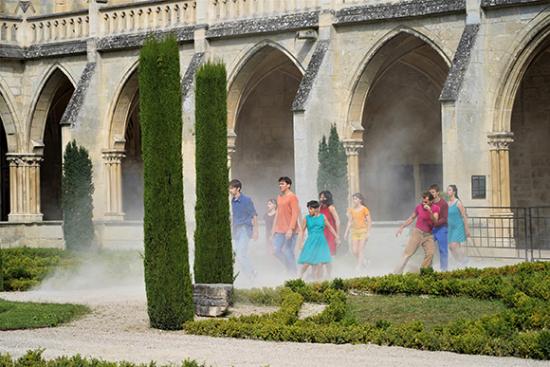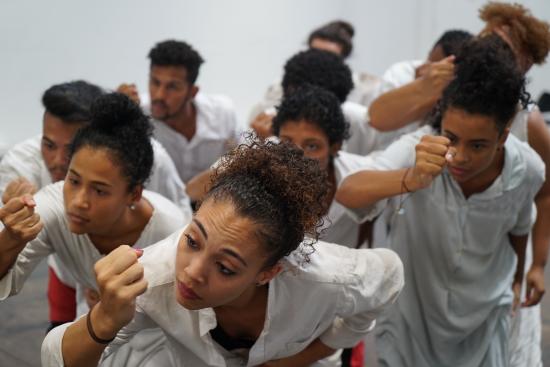Initiated by a prisoner who wished to mount a theatre workshop, a group of detainees began a veritable creative journey under the guidance of French theatre director Joël Pommerat. After improvising around scenes from plays by William Shakespeare and Marcel Pagnol, the actors chose to embark upon a free yet faithful adaptation of Pagnol’s Marius. To do so, they rewrote the script for a contemporary context, bringing to bear their own perspectives and sensibilities whilst respecting the work’s original intentions.
Set in Marseille, the play deals with travel, family ties and amorous desire – themes which could not but hold a special resonance for men deprived of their freedom. How to use the story in such a way as to give them the space and the power to let their own desires unfold? This theatre experiment was also an experiment in life: it enabled them to collectively create a work of art that went beyond the individual, and to blend courage, rigour and joy for a final result that the actors describe as far exceeding their original expectations. All of the participants were fully engaged in the highly demanding production process, in which they adapted the text at the same time as they rehearsed it, in professional conditions under the guidance of Joël Pommerat in collaboration with Caroline Guiela Nguyen.
This version of Marius, enriched by the lived experiences and the imagination of its actors, was first presented at the prison at Arles in winter 2017. There, five singularly intense performances were attended by the friends and family members of detainees as well as fellow prisoners and prison staff. Seizing an opportunity, the project leaders were able to organise six performances of the play in Marseille, in the former workshops of the Baumettes prison in autumn 2019. Marius took on a renewed resonance in the port city, the hometown of a number of the actors, and the experience was once again a marked success.
As part of its Artists in the Community programme, the Fondation d’entreprise Hermès accompanied every step of this project, from the first rehearsals in Arles through to the play’s second run in Marseille. Bringing together artistic experimentation and the voices of citizens, this unique creation stands as a testimony to the importance of bringing culture to those with the least access to it.
